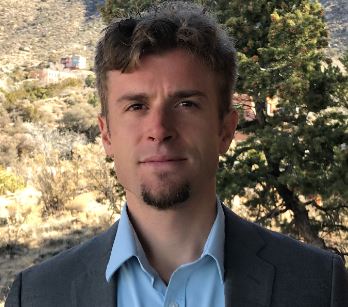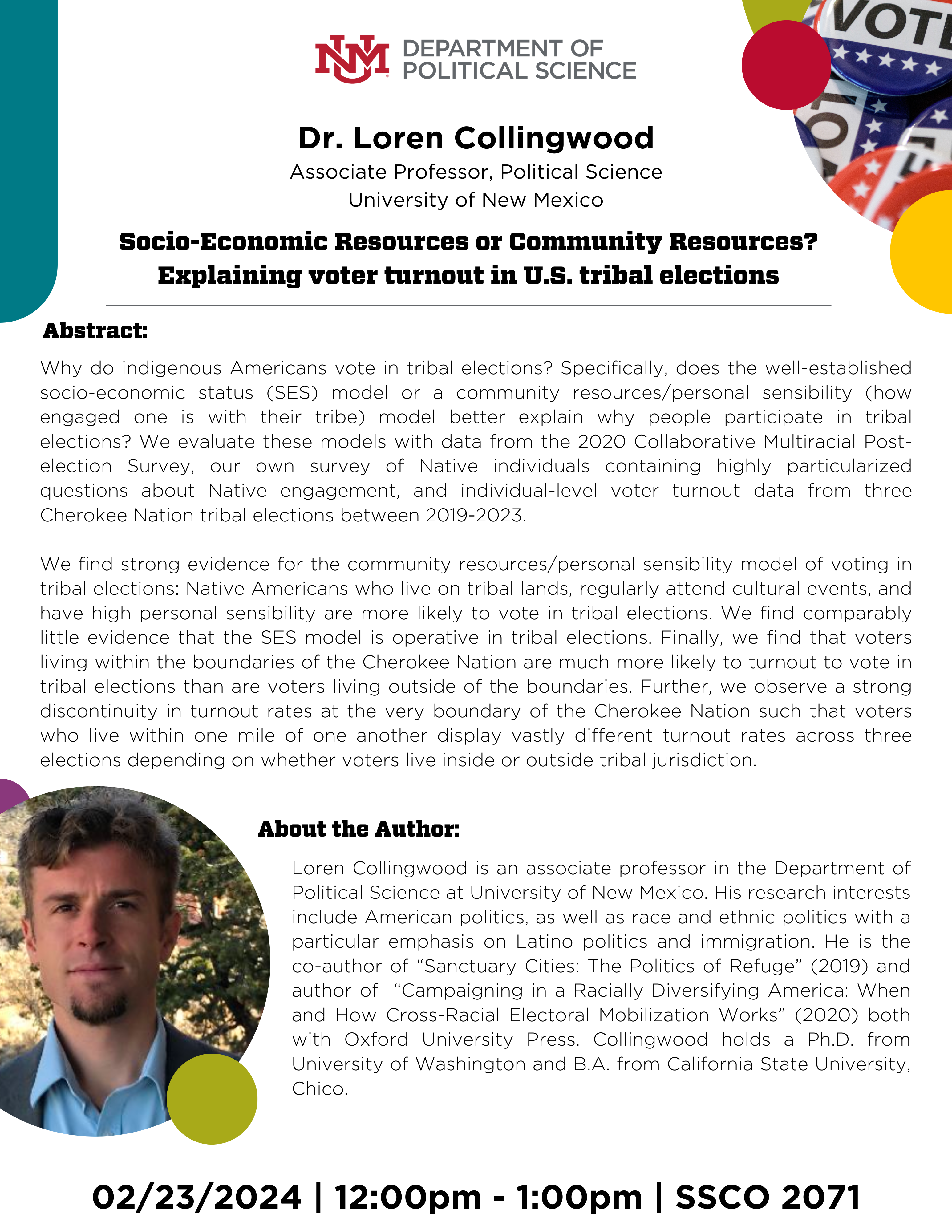Political Behavior Brown Bag: Dr. Loren Collingwood
Departmental Event

Start Date: Feb 23, 2024 - 12:00pm
End Date: Feb 23, 2024 - 01:00pm
Location: SSCO 2071
Please join the Department of Political Science as we welcome Dr. Loren Collingwood, Associate Professor of Political Science at University of New Mexico. Dr. Collingwood's talk is scheduled Friday, February 23rd, 2024 at 12:00p in Social Sciences room 2071. This event is free and open to all faculty, staff, and students.
A Zoom broadcast can be arranged, if needed please contact Department Administrator Marliss McGarvey. Talk title and abstract are below, the event flyer will be added ASAP.
Title: Socio-Economic Resources or Community Resources?: Explaining voter turnout in U.S. tribal elections
Abstract: Why do indigenous Americans vote in tribal elections? Specifically, does the well-established socio-economic status (SES) model or a community resources/personal sensibility (how engaged one is with their tribe) model better explain why people participate in tribal elections? On the one hand, voters with higher SES -- regardless of race, ethnicity or tribe -- should be more likely to vote than those with lower SES simply because they have more resources. This is perhaps the most well-established finding in the study of American political behavior.
On the other hand, tribal members living on tribal lands and/or who regularly attend cultural events and spend time around other Native Americans probably have higher tribal identity, are more likely to rely on tribal services, can more easily vote, have localized information about tribal politics, and are likely subject to greater community influence than are tribal members living off tribal lands and those with less contact with other Native Americans. We evaluate these models with data from the 2020 Collaborative Multiracial Post-election Survey, our own survey of Native individuals containing highly particularized questions about Native engagement, and individual-level voter turnout data from three Cherokee Nation tribal elections between 2019-2023.
We find strong evidence for the community resources/personal sensibility model of voting in tribal elections: Native Americans who live on tribal lands, regularly attend cultural events, and have high personal sensibility are more likely to vote in tribal elections. We find comparably little evidence that the SES model is operative in tribal elections -- even though we find evidence for it regarding federal elections among the same voters. Finally, we find that voters living within the boundaries of the Cherokee Nation are much more likely to turnout to vote in tribal elections than are voters living outside of the boundaries. Further, using a geographic regression discontinuity design, we observe a strong discontinuity in turnout rates at the very boundary of the Cherokee Nation such that voters who live within one mile of one another display vastly different turnout rates depending on whether they live inside or outside tribal jurisdiction. This discontinuity in turnout propensity is not observed in federal elections among the exact same set of voters. We further show that individuals who move onto tribal lands between elections are about 10% more likely to vote relative to similarly situated individuals who did not move onto tribal lands between elections suggesting turnout mechanisms are immediate and structural.

